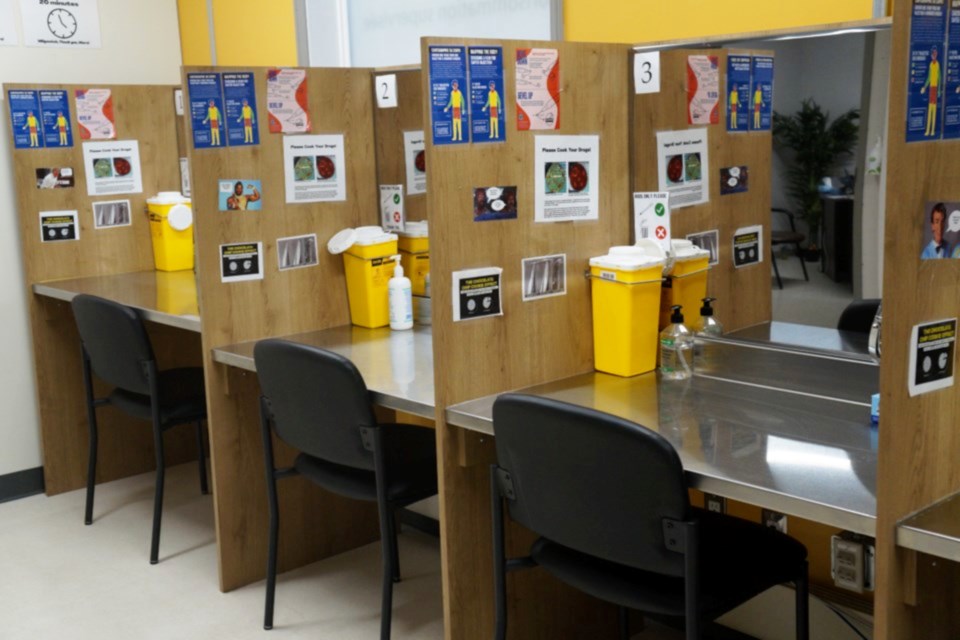GREATER SUDBURY — With the future of Sudbury’s only sanctioned supervised consumption site in jeopardy, its operator has launched a public advocacy effort to keep it open.
“The Spot has been a beacon of hope and support for many in the community, providing essential services to those in need,” the petition reads.
“It has been instrumental in reducing overdose deaths, helping prevent the transmission of diseases, and connecting individuals with crucial social and health-care services. Investing in harm reduction services is a proven cost-effective strategy that not only saves lives but also reduces health-care expenditures.”
Earlier this month, 16 workers at the supervised consumption site were put on notice that they would likely be losing their jobs on Dec. 31. Réseau ACCESS Network operates The Spot, located at 24 Energy Court in Sudbury.
INSIDE THE VILLAGE: Who should foot the bill for safe consumption sites?
Greater Sudbury city council voted in 2021 to commit $1.1 million per year in funding toward the site on a temporary basis for three years, despite health care being a provincial jurisdiction.
Meanwhile, the provincial government has put all funding applications for supervised consumption sites on hold while they develop new safety protocols following a shooting outside of a site in Toronto in July.
See related: New supervised consumption sites in Ontario on hold until review complete
Réseau ACCESS Network executive director Heidi Eisenhauer has called the shooting a scapegoat used by the province to justify not funding sites.
"We recognize we've lost hundreds and hundreds of lives here in Sudbury, and this is a crisis,” she told The Trillium, describing the politicians who stood up to applaud the decision to pause future funding as “shameful.”
See also: 'Almost died a few times': Northern Ontario city of Sudbury grapples with opioids
“We have to look at the bigger picture,” Greater Sudbury Ward 6 Coun. René Lapierre said at the time. ”In 2019 and 2020, there were more than 160 fatalities due to opioids. We’re asking for a million dollars for a couple of years to try to reduce that. This is a three-year cost for us, and I as a councillor, as a resident, am willing to eat that.”
See also: VIDEO: How drug consumption sites save lives
There have been at least 483 people in the Greater Sudbury area who have died from opioid toxicity since 2013, and there was a 346-per-cent increase between 2018 and 2022, during which the annual death rate jumped from 26 to 116.
The supervised consumption site opened in September 2022, offering people injecting substances with nearby medical assistance and drug testing services to ensure what they’re using is what they intend. The site received more than 1,000 visits in its first year.
Although the city’s elected officials and local NDP MPPs have advocated for provincial funding, none has come.
The City of Greater Sudbury’s draft budget, which will be tabled on Nov. 15 and debated by the city council in December, will not include funding for the supervised consumption site.
See also: Opioid Crisis: Northern cities working toward supervised consumption sites
In North Bay, no such facility is in operation.
According to the North Bay Parry Sound District Health Unit, "A local task force comprised of community partners was established to assess the feasibility of establishing a safe consumption site for North Bay in 2022. Unfortunately, the lack of funding to support the start-up and long-term operation and staffing of a safe consumption site remains a barrier to having one established."
The Health Unit "continues to work together with community partners to prevent and reduce overdoses in the community, monitor current and emerging trends, reduce stigma, and increase access to naloxone and harm reduction services. We are also working with partners to address the factors that contribute to individuals starting to use substances, and to strengthen protective factors such as coping abilities, family and community belonging, safe, stable environments, and good standards of living."
See: Significant increase in local opioid-related deaths: Health Unit
According to the City of North Bay's Community Safety and Well-Being Plan, the health sector, addiction services providers, and the Health Unit have a one-year timeline to establish and implement harm reduction recommendations while the North Bay Police Service and OPP are to "explore the implementation of a safer opioid supply program," with a timeline of one to three years.



